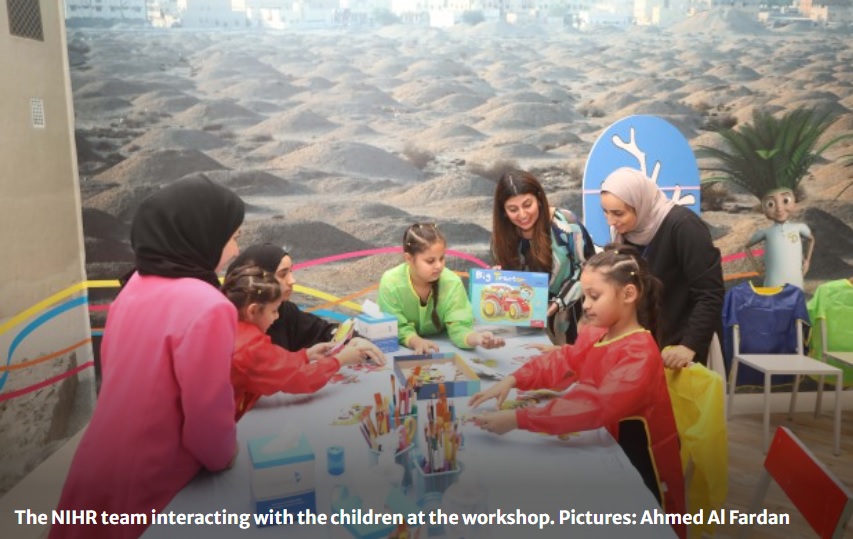Bahrain making significant progress on children's rights

BAHRAIN is making significant progress in educating children about their rights, a top official has said.
A dedicated team from the National Institution of Human Rights (NIHR) has been reaching out to the young with programmes to help them understand their rights, NIHR secretary general Yasser Shaheen said.
The team has been visiting schools and participating in all national initiatives with programmes tailored to the socio-cultural fabric of Bahraini society.

Mr Shaheen was speaking to the GDN on the sidelines of the Bahrain Summer festival at its Art Centre venue, which hosts several programmes for children. The 14th edition of the festival, which runs until today, features free events and workshops organised by the Bahrain Authority for Culture and Antiquities.
"The NIHR was set up in 2009 and began full-fledged operations in 2012, and I believe we have done a good job in spreading awareness on child rights ever since," he told the GDN.
"We have a trained team that visits schools and interacts with children. Unfortun-ately, we had to halt it due to the Covid-19 pandemic and switch to remote work, which had its own limitations.
"We will soon resume it. Through these interactions we teach children that human rights apply to them as well, and they have the right to freedom of expression and opinion, belief and religion, liberty, and security.
"They should know that they have the right to education. They can grow up to choose to work, they have the right to rest and leisure, to fair public hearing and adequate standard of living."
The NIHR's 2021 annual report highlights cases related to children's right to education, which it underlines as 'a fundamental human right'.
Despite progress in enhancing child rights education, the challenge of awareness continues, added Mr Shaheen, who said the NIHR's programme was designed to suit the national culture.
"Bahrain is party to all international child-related treaties and has measures in place - yet I would say, creating awareness among children about their rights, educating them in a balanced way, by communicating in their language in accordance with their age, is a challenge.
"It is a continuous process and our programmes emphasise the culture, so that children understand family values that we respect and we adapt these accordingly.
"In government schools, there's human rights education from grade one and it is being monitored as they grow up, so that the culture factor is embedded into the curriculum.
"So I think this helps them grow up in a balanced manner - knowing their rights within their cultural and social values."

This year around 30 children aged nine to 12 took part in the three-day workshop on child rights which concluded last week. It was designed and delivered by the NIHR team.
"This is our fifth year at the Summer Festival and every year we try to have new methods of teaching children," said Mr Shaheen.
"It includes stories and creative activities that keep children engaged as they listen. We also have colouring and drawing on related topics."
Mr Shaheen added that the NIHR has thus far not received any major concerns related to children's rights in the country. Cases addressed by the team were limited to 'references as part of family disputes', which he said were channelised through its legal assistance department to the concerned authorities.
According to the NIHR's 2020-2021 annual report, 100 children who were subjected to violence benefitted from the National Child Helpline (998) under the Social Development Ministry, while another 594 cases were dealt by the Child Protection Centre under the ministry.


